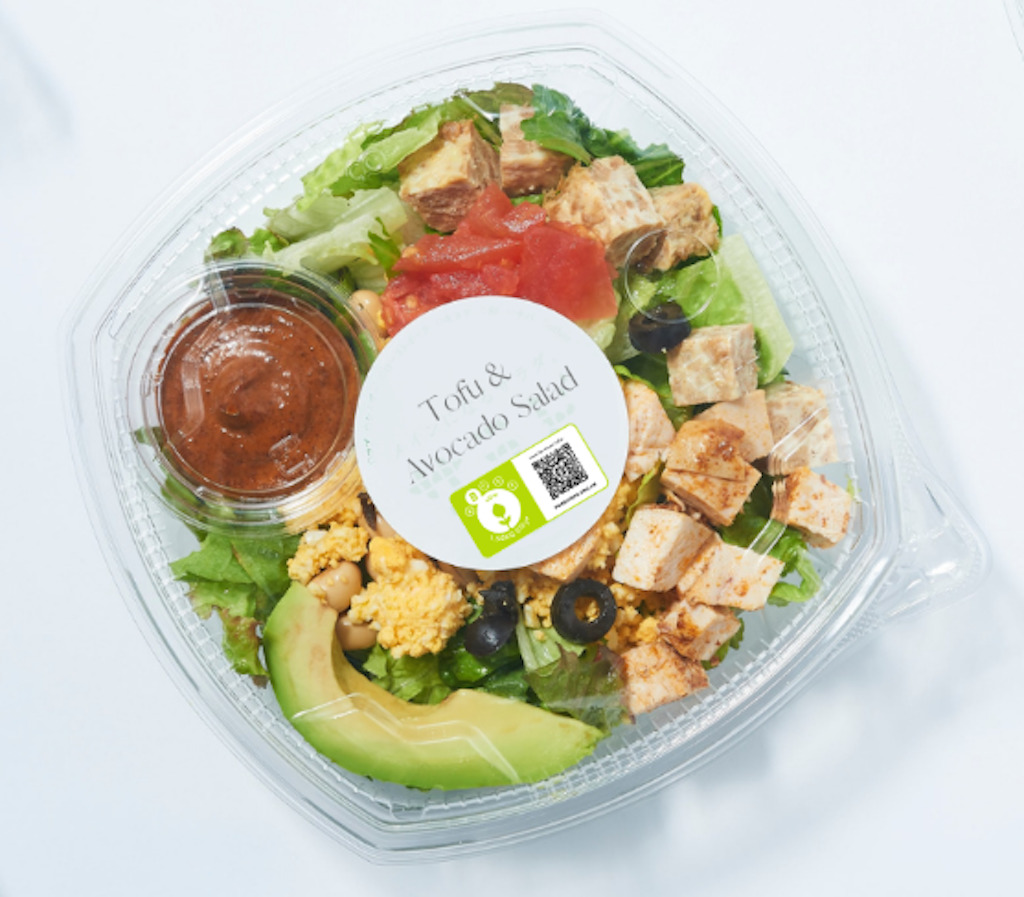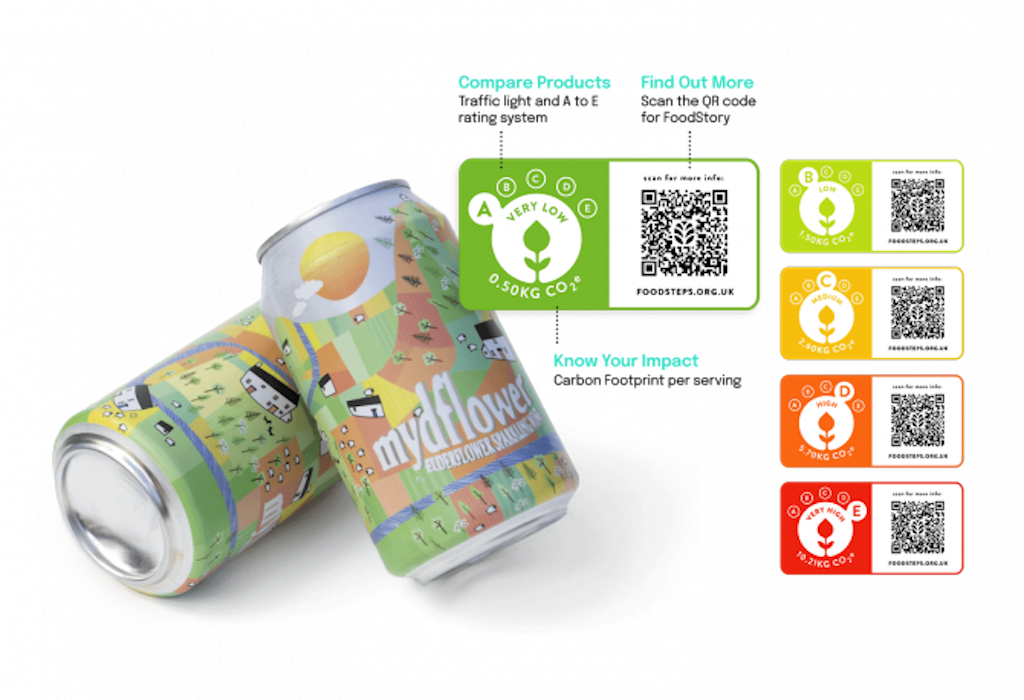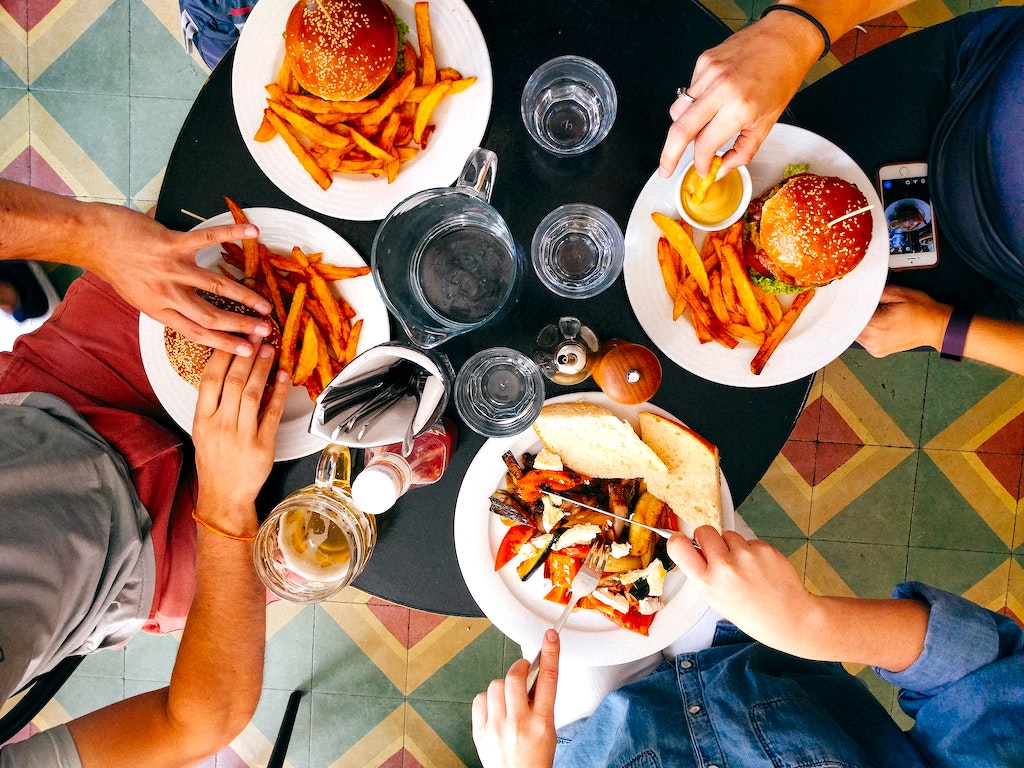4 Mins Read
Ever wondered how climate-friendly a meal is at your favourite restaurant? One startup wants this information to be more widely available. Founded by Cambridge University scientists and experts, Foodsteps has created a platform to help restaurants, brands, and caterers calculate, reduce, and label their meals.
Foodsteps, which launched last week, has developed a first-in-the-country database that contains the environmental impact of more than 1,000 ingredients. The service, which calculates, tracks and carbon labels meals, dishes and products, aims to help businesses pinpoint where sustainable changes can be made while arming consumers with the information to make eco-friendly choices.
Widespread carbon labelling could be a reality

Foodsteps was started by Cambridge University alumni Anya Doherty, who was on a mission to close one big obstacle for food businesses to become more sustainable. Until now, there had been no standard database containing the environmental impact of recipes and ingredients within the U.K.
Doherty, working alongside academics at Cambridge, decided to compile the first British-specific impact database for food. Foodsteps contains more than 1,000 ingredients and calculates its impact by factoring in everything from water and land use, to GHG emissions and pollution.
For the founder, widespread carbon labelling can’t happen without a standard database—and Foodsteps has now created it.
“It is my belief that if we can make assessing and communicating environmental information in the food industry more accessible and standardised, there is no reason why it won’t become as widespread as nutritional information,” said Doherty.
Making it easy for businesses
The platform is intended to make sustainability as easy as possible for food businesses. Besides helping businesses calculate the footprint of foods and ingredients, Foodsteps offers a cloud-based platform where companies can track product development, monitor reductions in emissions and set targets.

It’s also where businesses can print their own labels to communicate with customers how climate-friendly a dish is. The labels work much like the traffic light-style labels that Foundation Earth launched recently, which is set to roll out on products made by Nestlé and retailed at chains like Sainsbury’s and M&S.
Foodsteps says the traffic light ratings, which go from A to E, were developed through a consumer study with 85,000 participants—the largest study to be conducted into carbon labelling to date. Food businesses can choose to add a QR code to their labels too, where consumers can scan to learn more about the environmental impact of the product, or what a brand or company is doing to improve.
Doherty says that this type of information is becoming increasingly important to shoppers, especially younger millennials and Gen Zs, who are scrutinising brands’ values, social and environmental responsibility more than ever before.

“With our platform, consumer tools, and carbon labelling capabilities, brands can differentiate themselves in the market and communicate with customers in ways they never have before,” she shares.
And with demand for carbon labels on the rise, Foodsteps and its solution has already caught the eye of investors. It has gained the backing of Techstars and COREAngels in a pre-seed round, and has won a £25,000 grant from Bupa to scale and co-develop a product.
The rise of carbon labels
While Foodsteps might be the first platform of its kind within the British food industry, a similar service is being offered by Klimato in Sweden. The Stockholm-based firm, which recently raised $785,000, offers a user-friendly tool for restaurants and caterers to calculate and communicate the climate impact of their meals.
The labels have already been rolled out across various Swedish restaurants like Bastard Burgers and Oh Poké. One of its major clients is catering giant Sodexo.
Outside of foodservice, CPG brands are also hopping on the carbon label trend. Unilever is the largest company to have made the promise so far, and will be piloting the labels within the U.S. and Europe this year before rolling the project out to cover all 75,000 of its products globally.
Lead image courtesy of Unsplash.




